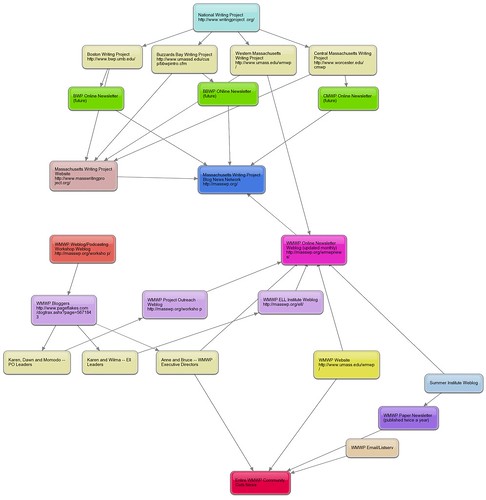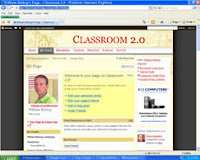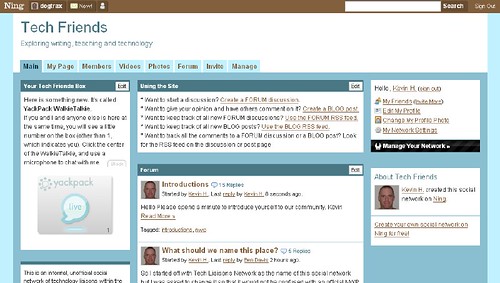On Friday, I am off to Chicago for a Monograph Book Project with the National Writing Project. My colleagues, Bruce P. and Susan B., and I have been writing the story of what happened to our Western Massachusetts Writing Project when three seismic events took place:
- We lost all of our state funding for supporting writing teachers in our region
- One of our founders and guiding forces died suddenly and unexpectedly
- Another founding member and longtime director announced that he would be retiring
This was all before my time at WMWP, so it has been quite a narrative journey for me to discover the history of our site. In Chicago, we will be meeting with editors and other writers from other writing projects to discuss our progress and how things are going.
Essentially, our book is built around these ideas:
Þ The creation of an inservice coordinator position to spearhead our efforts to reach into more schools by tapping into the expanding knowledge base of our teacher consultants.
Þ The addition of a technology liaison who not only helped move us forward into technology in new ways but also became part of the leadership team that allowed our site to view what we were doing, and how we could improve, through a different spectrum.
Þ A model of mentoring in which veteran leaders of site-based programs would ask for newer, less-experienced teacher consultants to become co-leaders and this not only gave us flexibility in times of unexpected crisis, but also expanded the number of leadership positions at our site.
Þ Writing out explicit job descriptions for leadership posts, from co-director to technology liaison, as a way of not only explaining the roles and responsibilities of the position, but also leaving a paper trail for the future.
Þ The recasting of our entire leadership structure to feature rotating co-director slots with three-year term limits and the launch of a task force structure that allowed more teacher consultants to get involved in the decision-making process of our site than had happened previously.
Þ Increased efforts to create partnerships with organizations outside of our traditional circle of friends that allowed us to expand our visibility and reach in a wider geographic and demographic area. These partnerships included Westfield State College, the Wisteriahurst Museum in Holyoke and the Springfield Republican newspaper.
Peace (with reflection),
Kevin



